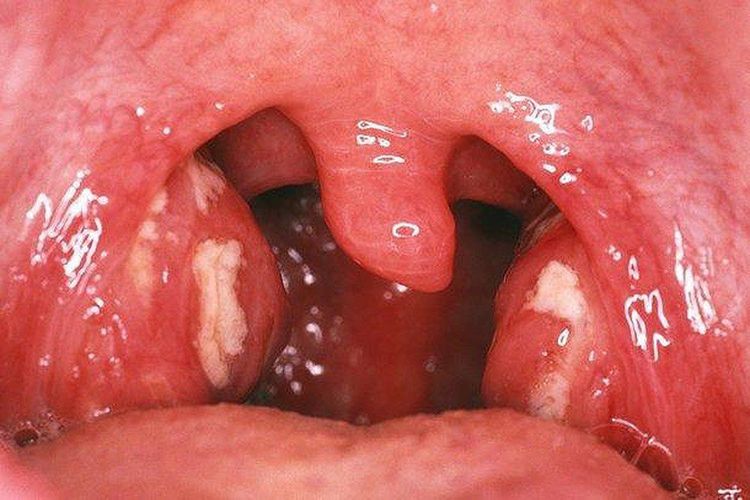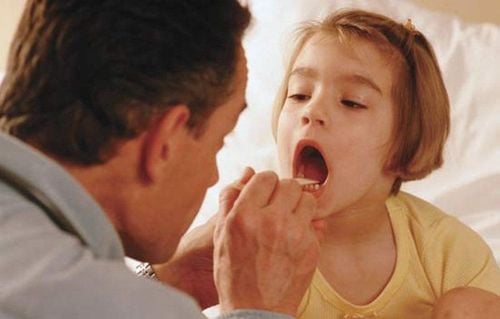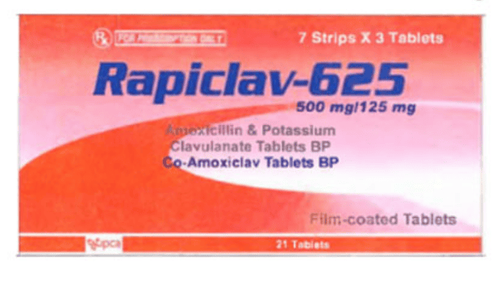Tonsillitis is one of the common ear, nose, and throat conditions that can occur at any age. The condition can be caused by viruses or bacteria. Recurrent and frequent tonsillitis can lead to chronic tonsillitis. This recurrence is primarily related to weather changes, how the patient cares for their body, and the treatment process for acute tonsillitis episodes. How does recurrent tonsillitis occur? And what can be done to prevent frequent recurrence of tonsillitis in children?
1. Recurrent Tonsillitis
Tonsillitis is a condition where the tonsils in the throat are damaged by viruses or bacteria.
Tonsillitis typically presents in two clinical forms: acute tonsillitis and chronic tonsillitis. If acute tonsillitis episodes are not treated promptly, it can cause complications with the tonsils and surrounding tissues, and repeated episodes can lead to chronic tonsillitis, which can last for many years. Treatment costs are high, and it continuously affects the patient's quality of life.
Tonsillitis is more likely to recur during seasonal transitions and weather changes, especially when a person is exposed to cold weather for extended periods without protecting and warming the body, particularly around the throat.
Clinical manifestations of acute tonsillitis:
- It is more common in children and teenagers.
- Sudden high fever: this is usually the first symptom at the onset of acute tonsillitis, accompanied by body aches and loss of appetite.
- Headache, runny nose, nasal congestion, which can be mistaken for the flu.
- Sore throat, pain worsens when swallowing saliva or food, difficulty swallowing.
- In some cases, breathing difficulties due to enlarged tonsils compressing nearby tissues in the throat, loud snoring, hoarseness, or even temporary voice loss.
- Throat examination shows a red throat, swollen tonsils, redness, possible pseudomembranes or abscesses.
Chronic Tonsillitis:
- This is a condition of recurrent tonsillitis due to improper or untreated episodes of acute tonsillitis.
- It usually occurs in adolescents, adults, and the elderly.
- Chronic tonsillitis is divided into three types: hypertrophic tonsillitis, purulent tonsillitis, and atrophic tonsillitis.
- Symptoms: Recurrent episodes of tonsillitis cause high fever, voice changes, hoarseness, or even loss of voice initially, sore throat, painful swallowing, a feeling of something stuck in the throat, bad breath, coughing with phlegm or pus, or necrotic tissue from the tonsils.
- Upon examination, the tonsils may show pus-filled cavities, and in many cases, recurrent inflammation leads to fibrosis or hypertrophy of the tonsils.
- Acute episodes of chronic tonsillitis can lead to high fever, seizures, possible pus cavities or abscess formation in the throat, and even severe dehydration causing cardiovascular collapse, acute ear, nose, and throat infections, systemic infections, and potentially life-threatening complications.

2. Preventing Recurrent Tonsillitis
Tonsillitis is treatable; however, the recurrence rate is very high. To limit the occurrence of recurrent tonsillitis in children, you should pay attention to the following guidelines:
- Limit exposure to factors that increase the risk of recurrent tonsillitis, such as dust, ice, alcohol, etc. Many studies show that it is not the consumption of cold ice water itself that causes tonsillitis, but rather the fact that ice water may not be sterile, containing bacteria that can easily cause tonsillitis. Medical associations recommend using warm water when suffering from tonsillitis.
- The recurrence of tonsillitis is closely related to weather changes, so it is crucial to protect the body from weather changes as part of preventing recurrent tonsillitis. In the summer, avoid using air conditioners at very low temperatures for prolonged periods, and keep the body warm, especially around the throat during winter.
Regularly clean the nose and throat with saline solution, and brush teeth at least twice a day, morning and night, after meals. - Drink plenty of water, at least 2 liters per day, and follow a balanced diet with sufficient nutrients. Eat soft foods and limit spicy, hot foods.

- To thoroughly treat respiratory diseases such as rhinitis, sinusitis, otitis media, and periodontal diseases, it is crucial to address them completely to prevent the spread of bacterial or viral infections that could lead to continuous throat infections or tonsillitis.
- If antibiotics are necessary during treatment, it is essential to follow the doctor’s prescription, avoiding overuse, which can lead to antibiotic resistance. This can complicate future treatments and increase the likelihood of recurrent diseases.
- Consult a specialist immediately if you notice signs of recurrent tonsillitis, such as high fever, sore throat, or painful swallowing.
The tonsils play an important role in protecting the body by fighting pathogens from the outside. As one of the first organs to come into contact with viruses and bacteria, the tonsils are susceptible to inflammation, which can lead to symptoms such as fever, cough, sore throat, and headache. While tonsillitis can be managed, it is often recurrent, leading to chronic tonsillitis and adversely affecting the patient’s health.
The Ear Nose and Throat department - Vinmec International Hospital specializes in diagnosing and treating common ENT disorders such as tonsillitis, sore throat, tinnitus, non-allergic rhinitis, throat cancer, head and neck tumors, and congenital abnormalities in the ear, nose, and throat region using common surgical methods.
To arrange an appointment, please call HOTLINE or make your reservation directly HERE. You may also download the MyVinmec app to schedule appointments faster and manage your reservations more conveniently.








